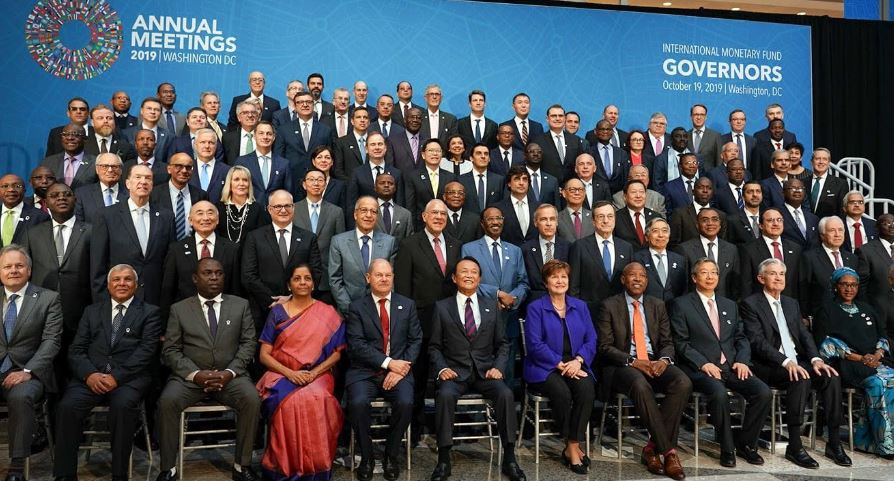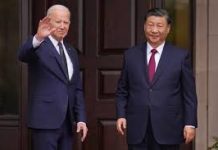 Union Finance Minister Nirmala Sitharaman has said that the global economic risks and imbalances reinforce the need to strengthen global co-operation at the multilateral level, besides governmental initiatives.
Union Finance Minister Nirmala Sitharaman has said that the global economic risks and imbalances reinforce the need to strengthen global co-operation at the multilateral level, besides governmental initiatives.
She stated this in her intervention during International Monetary and Financial Committee (IMFC) Plenary Session in the ongoing Annual Meetings 2019 of the IMF and World Bank being held in Washington DC, USA.
At the National level, a calibrated and balanced approach to deploying a mix of fiscal, monetary and structural measures by countries can help achieve their growth potential, the Finance Minister added.
Sitharaman further stated that International Monetary Fund (IMF) should provide solutions that are specific to important growth geographies to help alleviate the current conundrum. The Finance Minister also stressed that the IMF should evolve a policy framework that would assess the vulnerability of economies to capital flows and that developing stronger surveillance mechanism with sharper diagnostic tools can mitigate or even prevent the adverse effects on fragile economies.
On the 15th Round of the IMF’s General Review of the Quotas (15th GRQ) likely to conclude without a quota increase, the Finance Minister stated that work on the 16th Round should begin in right earnest and should have a tight timeframe.
Sitharaman later participated in the 100th Meeting of the Development Committee Plenary. The items on the agenda included the World Development Report 2020: Trading for Development in Age of Global value Chains; Jobs and Economic Transformation (JET): Drivers, Policy Implications and WBG Support theme for IDA; Human Capital Project: An update; and IDA Voting Rights Review: Report to Governors.
In her intervention at this session, Sitharaman mentioned that as we draw closer to SDG 2030, India is pursuing both scale and speed of development, through large National missions in a fiscally responsible, sustainable and inclusive manner.
These programs range widely from solar energy to direct benefit transfer, from skilling to sanitation. But there is a common approach: to improve incomes, reduce deprivation and enhance living standards. Sitharaman also stated that in pursuing investment led growth, one should not neglect sustainability, efficiency and transparency in debt and tax policies.
“Moreover, investments must generate domestic revenues that can be channelized into effective public spending in health, education and skilling so that youth can benefit from the economic growth,” she added.
The Finance Minister encouraged IMF to guide concerted international action to combat illegal financial flows and welcomed collaboration to push investment to augment MDB financing into developing countries.
She concluded her engagements with a press conference where she talked about the highlights of this visit.
The Finance Minister is currently on an official tour to Washington DC to attend the Annual Meetings of the International Monetary Fund and the World Bank and other associated meetings.
She is accompanied by RBI Governor Shaktikanta Das, Secretary Economic Affairs Atanu Chakraborty and other officials.













